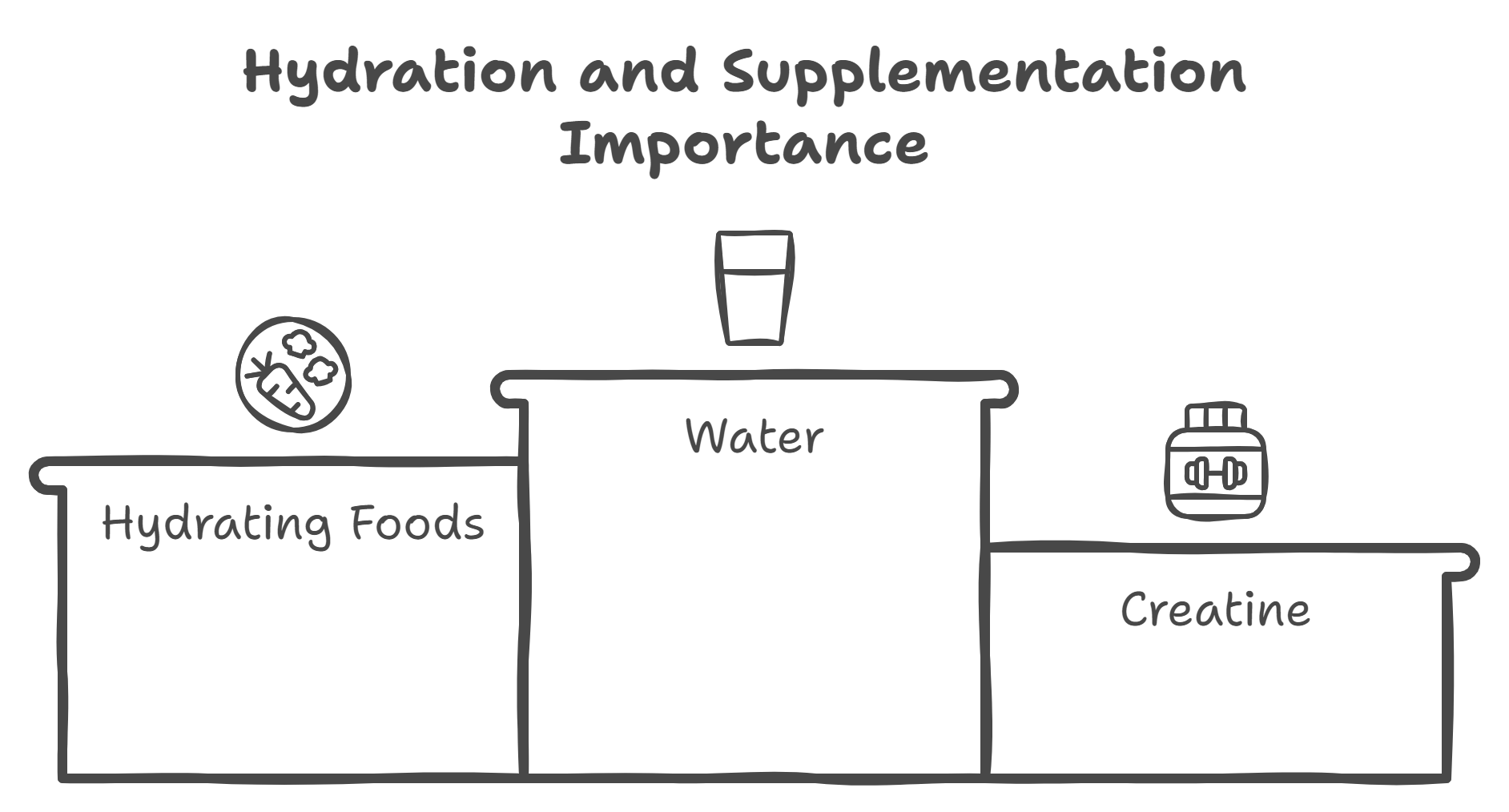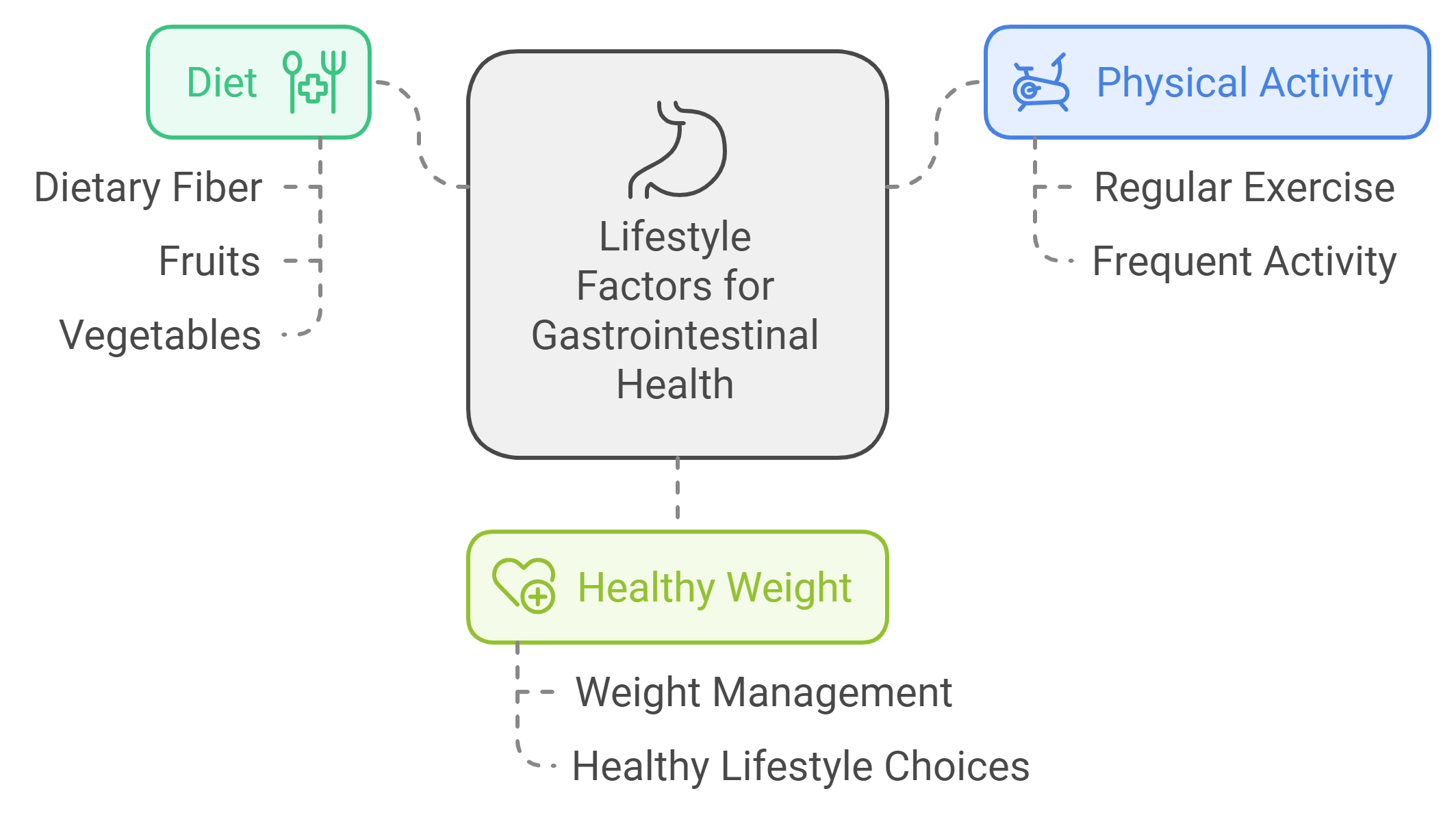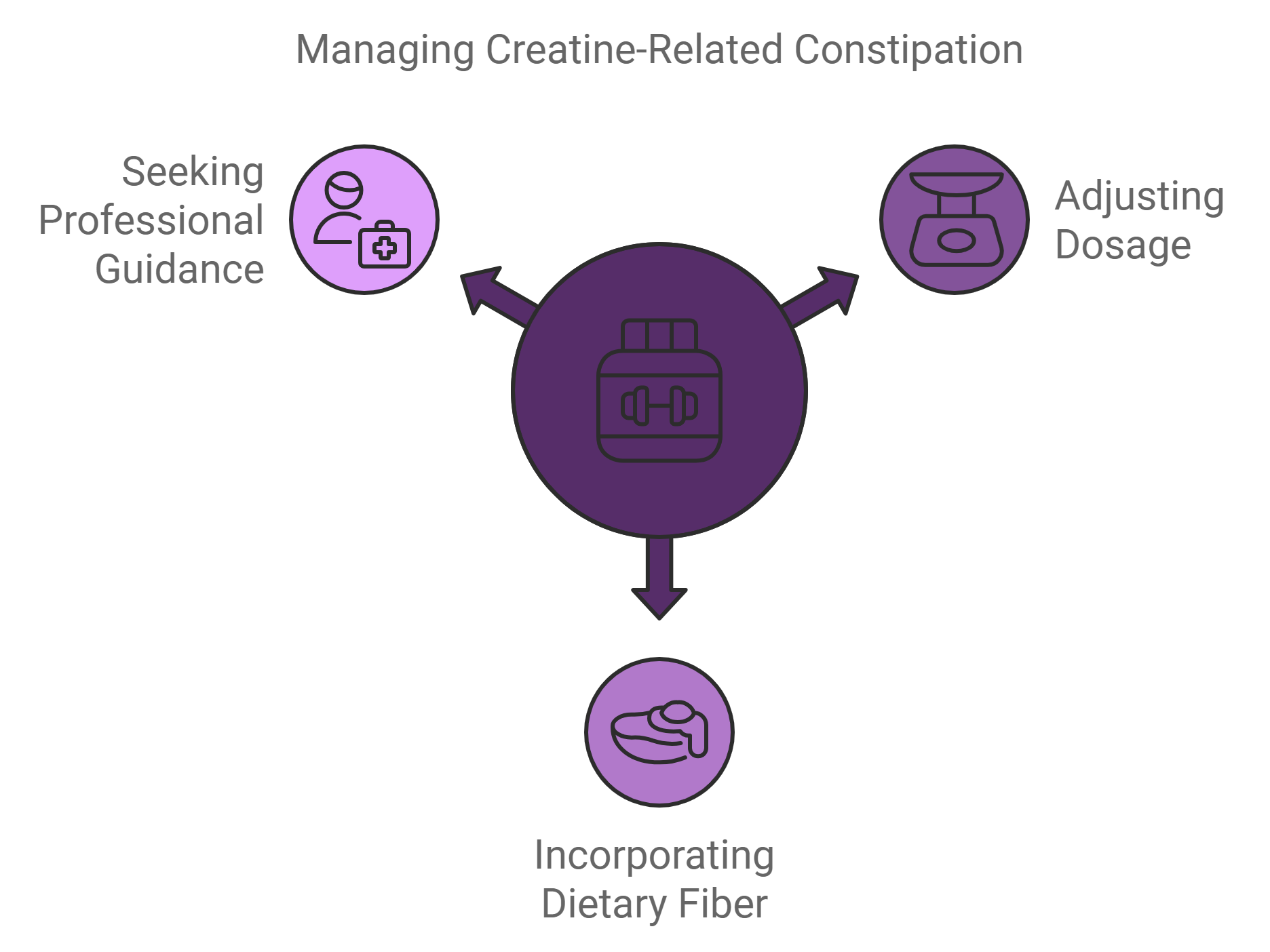What is Creatine?
Creatine, a chemical found naturally in the body, is mainly produced by the liver, kidneys, and pancreas. It is an important component for providing energy to muscles during brief and intense periods of exercise, e.g., weightlifting or sprinting.
Creatine supplements help increase both muscle power and strength when engaged in high-intensity workouts, for which it is mainly used by athletes and those who actively exercise.
The variety of creatine supplements is multiple, starting with creatine monohydrate, creatine ethyl ester, and creatine hydrochloride. These different products are absorbed and affect the body in different ways.
Addressing the Concerns: Does Creatine Make You Constipated
Exploring the Evidence
Some people may say that if they consume creatine they may be constipated. However, scientific investigations conducted on this subject reveal different outcomes. Cases have been reported in which exceptionally in connection with creatine’s use, certain gastrointestinal issues, including constipation, might be present.
On the other hand, some researchers do not confirm this relationship. These mechanisms for why creatine might get you constipated are not clear, but it is suspected that dehydration, microbiota variation in the gut, individual variations in metabolism, and sensitivity to it might have a say.
Debunking Myths
If you have been hearing about creatine causing constipation, then knowing the difference between rumors and facts is necessary. The importance of hydration levels might be usually neglected, however, can determine the well-being of the digestive system significantly. Such will help alleviate digestive problems by taking enough water while taking creatine products.
On top of that, individual differences in creatine supplementation, namely genetic aspects and pre-existent gastrointestinal conditions, could affect the probability of exacerbation of constipation.
Getting the Essence of the Importance of Hydration
In terms of general well-being and health, one should be adequately hydrated since it is very important during strenuous physical activity and when supplementing with creatine. Dehydration can worsen constipation and other gastrointestinal issues, especially in older people.
Thus, drinking enough water continuously during the day is as important as consuming creatine. Also, taking advantage of hydrating foods and liquids, like fruits and veggies, supports the body’s hydration needs.

Is Creatine the Culprit of Your Constipation?
Individual Variances
Individual reactions to creatine supplementation may significantly vary based on several factors. Factors like dosage, duration, and baseline conditions can affect how the body responds to a creatine supplement.
A few people taking creatine may have constipation as its side effect, on the other hand, others may not face any digestive problems at all. It is important to analyze your body and increase/decrease creatine doses according to personal tolerance, as well as preferences.
Lifestyle Factors
Besides creatine supplementation, diet, and physical exercises are other factors which have a lot to do with gastrointestinal health. Dietary fiber, fruits, vegetables, etc, all have positive effects on the stomach as they are able to promote regular bowel movements and reduce constipation.
In addition, having frequent physical activity and keeping a healthy weight are the factors that may help the digestive system work properly and maintain a good mood. Adopting conscious lifestyle choices will not only help lower the risk of constipation but also give creatine an added advantage to consumption.

Managing Creatine-Related Constipation
Adjusting Dosage
Constipation may develop while taking creatine supplements, cut down on the dosage and interval of supplementation to get rid of the symptoms. Others may prefer to take a lower dose and then add it gradually to minimize gut malaise.
Other than cycling of creatine supplementation, which alternates the periods of use with periods of rest, can also play an important role in preventing tolerance development and lowering the risk of side effects like constipation.
Incorporating Dietary Fiber
Upgrading dietary fiber intake is a simple and effective measure that one can take to avoid constipation and promote constancy in the gut. Fiber gives in shape to stool, thus making it easy to slide through the digestive tract. Fiber-rich foods like whole grains, beans, fruits, and vegetables can be found in the corresponding group.
Likewise, fiber supplements like psyllium husk and flaxseed can be used to supplement needed amounts of daily fiber. Fiber diet and fibers boost gut health and the risk of constipation can be minimized by taking digestive supplements along with creatine supplementation.
Seeking Professional Guidance
Severe constipation or persistence of such a condition requires medical treatment; therefore, it is significant to consult a qualified healthcare specialist, such as a physician or a registered dietitian. They may be able to suggest custom solutions just taking into account certain health statuses or targets.
Furthermore, they play a significant role in nipping in the bud any potential medical problems that could be a root cause of digestive problems. Hiring a healthcare provider helps to make sure that the application of creatine is harmless and working for every individual, by prior consideration of the health record and personal needs.

FAQs
Would anabolic steroids lead to constipation?
While some individuals may experience short-term digestive problems, like constipation during the first stage of creatine supplementation, a lot of research proves that it does not cause long-term bowel irregularities.
Most researches appear to indicate that any gastrointestinal symptoms related to creatine use are usually mild and temporary. Ultimately, they subside with they stop taking the supplements.
Is it necessary to drop creatine intake if constipation is an effect?
Cessation of T creatine intake may not be necessary if you experience something like constipation. However, you may want to examine the dosage, drinking more fluids or eating more fiber in your food rather than turning to laxatives for relief.
Nevertheless, it is advisable to see a healthcare professional to rule out any underlying problems and to obtain personal advice and guidance if you continuously suffer from them or if the situation becomes worse.
Does creatine have any alternatives to avoid constipation?
Although creatine is one of the most beneficial supplements for improving physical performance, there are some alternate strategies that people who experience stomach-related problems or want to avoid possible side effects can apply.
These alternatives may include other dietary supplements such as beta-alanine or branched-chain amino acids along with non-supplement approaches like optimizing nutrition, hydration, and training strategies.
Conclusion
Lastly, it should be noted that although there is evidence for the possibility of creatine supplement causing constipation, the available evidence is equally limited and not conclusive.
The comprehension of the specific factors that determine gastrointestinal health will help in making educated choices regarding creatine supplementation and in the reduction of any related digestive discomforts.
Through these strategies, athletes can gain the benefits of creatine supplementation while avoiding the risks of side effects such as constipation and others.

Curtis Walcker
Supplement Consultant
Hey there! I’m Curtis Walcker, a dietary supplement expert with a passion for all things fitness and nutrition. Armed with a Master of Science degree in nutrition. I’ve spent years diving into the nitty-gritty of regulatory affairs, scientific research, and product development in the supplement industry. Read More

